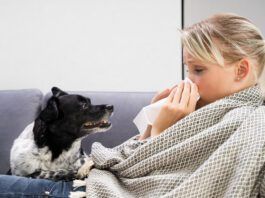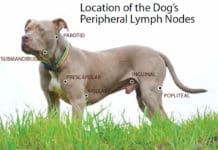Hemangiosarcoma in Dogs
While a diagnosis of canine cancer is never good, there are few types worse than hemangiosarcoma (HSA). Like all cancer diagnoses, it’s frightening, shocking,...
She Wrote the Book on Canine Cognitive Dysfunction
Eileen Anderson is an Arkansas-based author who also maintains the Dog Dementia website, a resource for people whose dogs have been diagnosed with CCD...
Nutritional Help for Canine Cognitive Dysfunction
Food and supplements can play a part in maintaining optimal canine cognitive functioning and supporting an aging canine brain. Dr. Fry advises talking with...
Dog Dementia: Symptoms, Diagnosis, and Treatment
Mercury, my Chihuahua-mix, turned 17 years old this year, making him (by far) the oldest dog amongst all of my friend’s dogs. When people...
Canine Melanoma
Canine melanoma is the umbrella term for a group of melanocytic tumor subtypes that are so complex and diverse (yet distinct from each other)...
Happy Hydrotherapy
Almost immediately after my youngest dog, Sirius, had surgery on both of her knees last year, I brought her to see a physical therapist....
Canine Seizures
Seizures are not common in dogs – but they aren’t rare, either. The Veterinary Information Network estimates that the prevalence in the dog population...
Quality of Life for Your Dog and You
In August 2011 my friend Tory felt a couple of small lumps on the throat of her 13-year-old mixed-breed dog, Scout. Within a couple...
Going Long
Summer is for reading, yes? These long summer days are a perfect time to relax and enjoy a good, long read that improves your...
Coccidioidomycosis: A Southwestern Hazard
If you live in or travel to the Southwest, particularly Texas, California, or Arizona, it is important that you know about a fungal infection...
Canine Lymphoma: Risk Factors, Symptoms, Diagnosis, and Treatment
Lymphoma accounts for 7 to 24% of all canine cancers and approximately 85% of all the blood-based malignancies that occur, making it one of...
Tips on Living With and Training a Blind Dog
When Orbit came into one of the classes I offer for puppies and their owners, in Santa Cruz, California, he was in most ways...



















